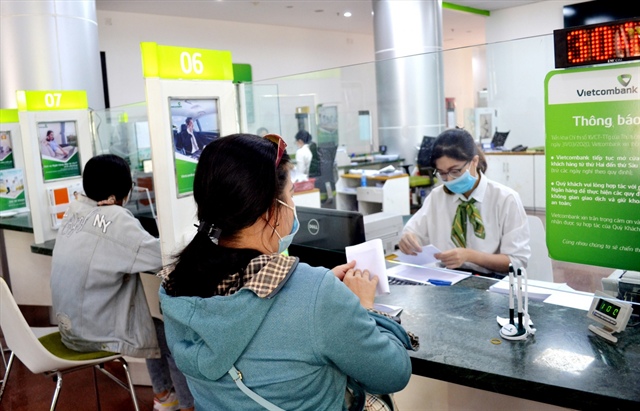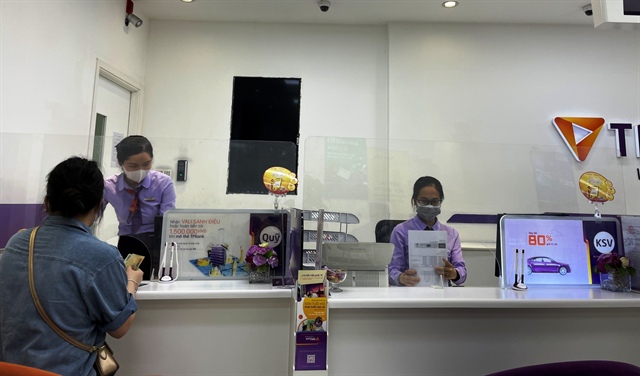Banks face pressure of long-term loans
Banks face pressure of long-term loans
The ratio of short-term funds used for medium- and long-term loans has officially decreased since October 2021, putting pressure on banks.

Outstanding loan balance may increase slowly as banks strictly control credit |
Reducing the ratio
Reducing the ratio of short-term funds used for medium- and long-term loans is a mandatory requirement set by the State Bank of Vietnam (SBV) in order to increase the financial safety of the banking system. The ratio was maintained at 40 percent, but has been reduced to 37 percent since October, according to regulations set out in Circular 08/2020/TT-NHNN dated August 14, 2020.
The circular was issued more than a year ago, loosening the roadmap for adjusting the ratio of short-term funds used for medium- and long-term loans, to enable banks to lower lending costs and provide preferential rates to aid post-pandemic recovery. Accordingly, the maximum ratio of 40 percent would be applicable until September 30, 2021, then cut to 37 percent from October 1, 2021 to September 30, 2022, 34 percent from October 1, 2022 to September 30, 2023, and 30 percent from October 1, 2023.
Financial-banking expert Nguyen Tri Hieu said a three-percent reduction in the ratio of short-term funds used for medium- and long-term loans is significant. It can affect the input and output of capital - the two main components of bank operations. Banks may face a shortage of capital for medium- and long-term loans, while outstanding loan balance may increase slowly as banks strictly control credit.
|
Expected capital mobilization
It is advisable to lower the ratio of medium- and long-term loans, contributing to the safety of the banking system. As the economy still has demand for medium- and long-term loans, banks may increase capital mobilization, resulting in an increase in deposit interest rates.
According to Dr. Nguyen Tri Hieu, reducing the ratio of short-term funds used for medium- and long-term loans may increase deposit interest rates, contradicting the desire for lower interest rates. However, this move is not too worrisome as commercial banks will not increase deposit interest rates to high levels.
One of the banks’ most used options is to avoid paying cash dividends to retain equity. In recent times, some banks have implemented this method thanks to high profit results in 2020 and the first half of 2021. However, profits in the banking sector in the second half of the year may not be high due to many factors.
Chief Economist Can Van Luc of the Joint Stock Commercial Bank for Investment and Development of Vietnam (BIDV) said banks have been promoting capital mobilization through bond issues. Since the beginning of the year, banks have increased issuance of long-term bonds with interest rates ranging between 3-4.2 percent per year in order to prepare the roadmap to reduce the ratio of short-term funds used for medium- and long-term loans.
| Bond issuance has become one of the fastest and most effective ways for banks to increase medium- and long-term capital sources and implement the roadmap for reducing the ratio of short-term funds used for medium- and long-term loans. |



















